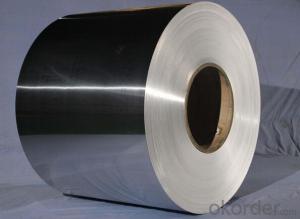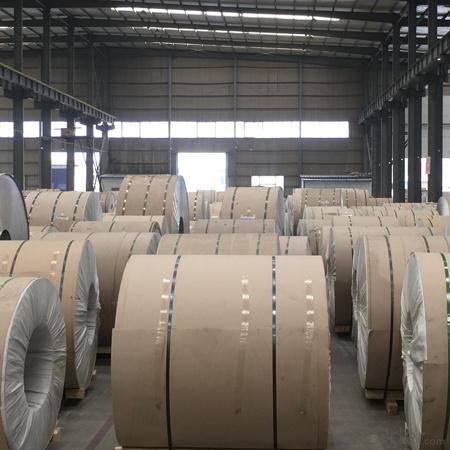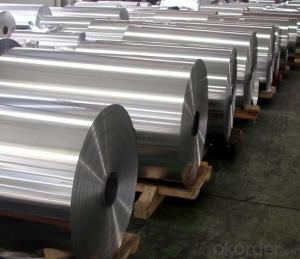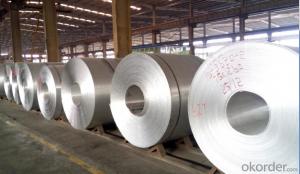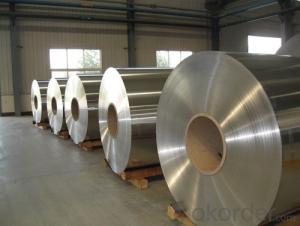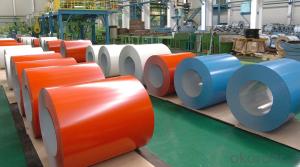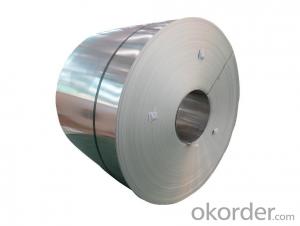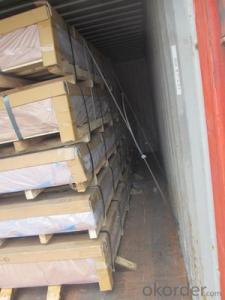Acm Aluminum Coil Stock 1060 H32 Aluminum Rolled Sheet Aluminium Coil
- Loading Port:
- Shanghai
- Payment Terms:
- TT OR LC
- Min Order Qty:
- 5 m.t.
- Supply Capability:
- 500 m.t./month
OKorder Service Pledge
OKorder Financial Service
You Might Also Like
Specification
1060 H32 Aluminum Rolled Sheet Aluminium Coil
aluminum coil specifications:
1) Alloy :1050, 1060,1100, 3003 3004 3105 3A21 5005 5052 etc
2) Temper: O/H12/H14/H1/H18/H32/H34/H36/H38//H111/H112/H116/H321/T6/T651/T3/T351 etc
3) Thickness: 0.1mm to 6mm
4) Width:20mm to 3300mm
5)Coil weight: 100kgs to 6 tons depends on actual requirement
6)Core material: Aluminum or paper
7)Coil Inner diameter: 75mm, 150mm, 200mm, 300mm, 405mm, 505mm or as required
8) Protective film can be added
item | 3003 Aluminum coil | |
Standard | GB/T3190-2008,GB/T3880-2006,ASTM B209,JIS H4000-2006,etc | |
Material | 1060,1050,1100 3003,3103,3004,3005,3105 5052, 5454,5754 | |
Size | Thickness | 0.5mm-3.5mm |
Width | 800-1500mm | |
Weight/Roll | About 1.5MT/3MT | |
Quality control | Mill Test Certificate is supplied with shipment, Third Part Inspection is acceptable. | |
Surface | Bright, polished, hair line, brush, checkered, embossed, etc | |
Trade terms | Price term | ,FOB, CNF, CIF, etc |
Payment Term | TT,L/C | |
MOQ | 2MT | |
20 GP Capacity | About 20-25MT | |
Delivery time | 1.The products will delivery immediately after receiving the payment. 2.According to the order quantity, prompt delivery. | |
Export to | Ireland,Singapore,Indonesia,Ukraine,Spain,Canada,USA,Brazil,Thailand,Korea,Iran,India,Egypt,Kuwait, Oman,Viet Nam, South Africa, Dubai, Russia, etc | |
Package | Stick blue film→plastic film→waterproof paper→1~2 tons on a export standard pallet(corner protection) | |
Application | 1)Further making utensil.2)Solar reflective film3)The appearance of the building4)Interior decorating:ceilings,walls,etc.5)Furniture cabinets6)Elevator decoraction7)Signs,nameplate,bags making.8)Decoration inside and outside the car9)Household appliances:refrigerators,microwave ovens,audio equipment,etc.10)The consumer electronics:mobile phones,digital cameras,MP3,etc. | |
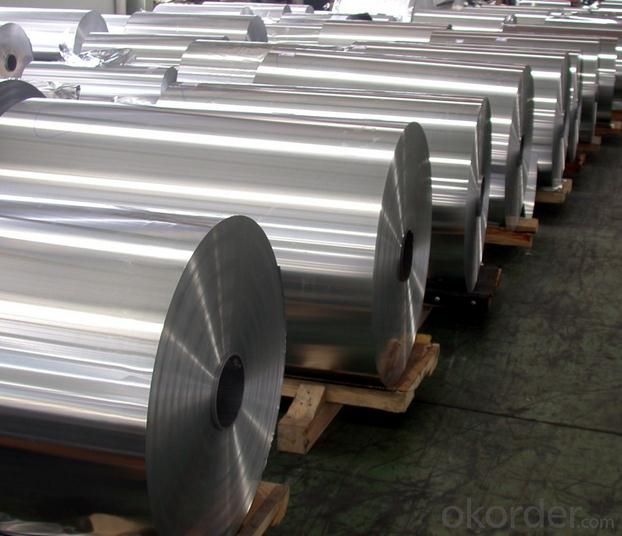
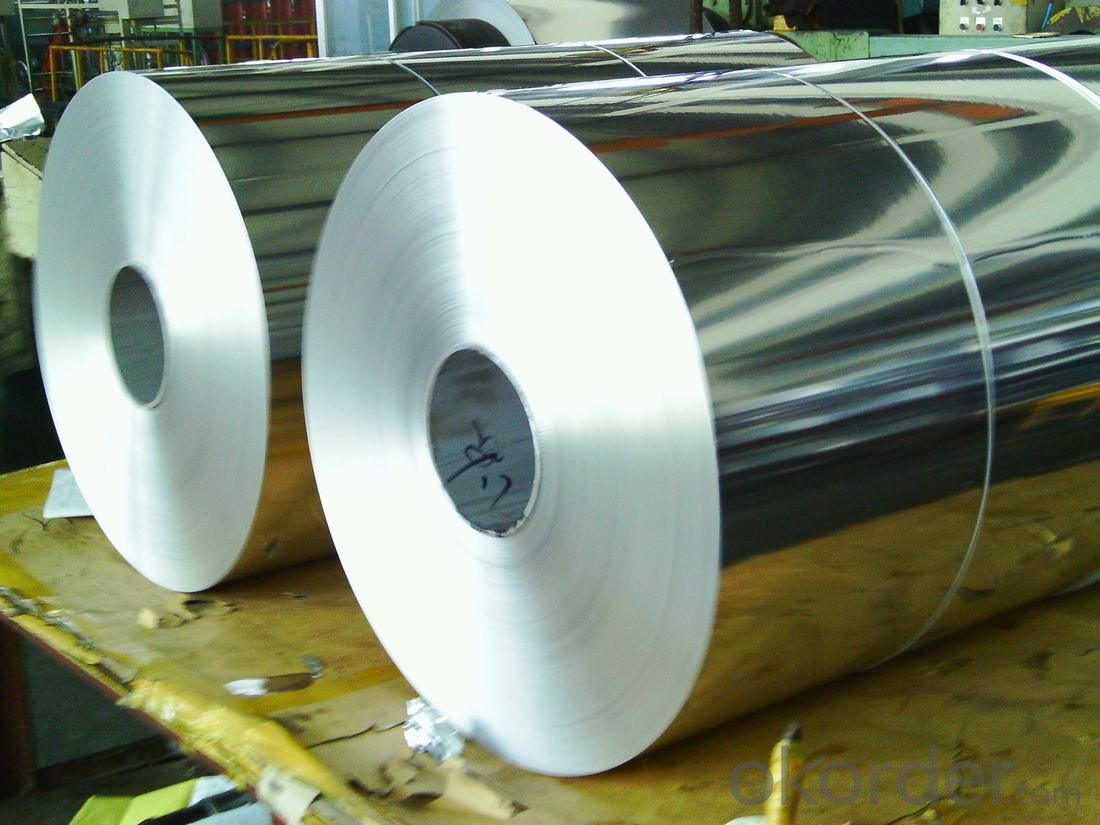
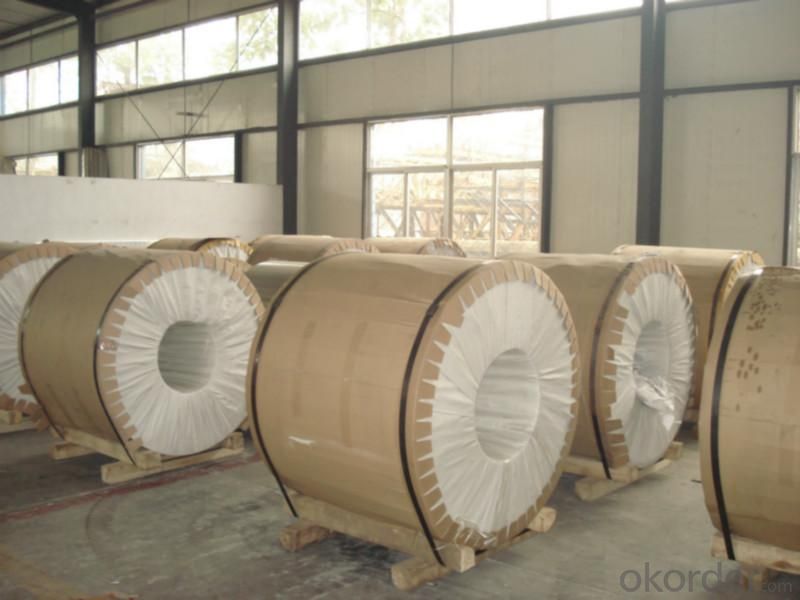
- Q: Cost of aluminium coil coating fluorocarbon paint?
- Hello, fluorocarbon paint according to the use of distinction: external wall fluorocarbon paint, aluminum, fluorocarbon paint, metal fluorocarbon paint, steel, fluorocarbon paint. According to industry standards to distinguish: GB products, non GB products.
- Q: What are aluminum coils used for and what are their applications?
- <p>Aluminum coils are versatile metal products that serve various purposes. They are primarily used in construction, manufacturing, and packaging industries. Some common applications include roofing and siding materials, heat exchangers, food and beverage cans, automotive parts, and electrical components. Aluminum coils are valued for their lightweight, corrosion resistance, and high thermal and electrical conductivity, making them ideal for a wide range of applications where durability and efficiency are required.</p>
- Q: What are the different types of surface finishes for decorative purposes?
- There are several types of surface finishes for decorative purposes, including glossy, matte, textured, metallic, and antique finishes.
- Q: Are aluminum coils suitable for soundproofing applications?
- Aluminum coils are not typically used for soundproofing applications. While aluminum is a good conductor of heat and electricity, it does not have the same sound-dampening properties as other materials commonly used for soundproofing, such as foam, rubber, or dense fibers. These materials are specifically designed to absorb and block sound waves, reducing noise transmission. Aluminum coils, on the other hand, are often used in HVAC systems or as a material for building exteriors due to their durability and heat transfer capabilities. Therefore, if soundproofing is the main objective, it is recommended to consider other materials that are specifically designed for that purpose.
- Q: Are aluminum coils resistant to corrosion?
- Indeed, corrosion is something that aluminum coils can withstand. The reason behind this lies in the presence of a natural oxide layer on the surface of aluminum, serving as a safeguard against corrosion. When aluminum comes into contact with oxygen in the atmosphere, this oxide layer is formed. Consequently, direct interaction between the metal and moisture or other corrosive elements is prevented. Furthermore, aluminum coils can undergo additional protective measures like anodizing or painting. These measures offer an added shield against corrosion, thereby enhancing the durability of aluminum coils, making them exceptionally resistant to rust and other types of decay.
- Q: What are the common surface finishes for aluminum coils in the electrical industry?
- In the electrical industry, aluminum coils are commonly used for various applications such as transformers, motors, and electrical enclosures. These coils are often subjected to different surface finishing processes to enhance their performance and longevity. One of the most common surface finishes for aluminum coils in the electrical industry is anodizing. Anodizing involves creating a protective oxide layer on the surface of the aluminum through an electrochemical process. This layer not only provides excellent corrosion resistance but also improves the coil's durability and electrical insulation properties. Another popular surface finish is chemical conversion coating, also known as chromate conversion coating. This process involves treating the aluminum surface with a chemical solution to create a thin layer of protective coating. The coating not only provides corrosion resistance but also improves the adhesion of subsequent coatings or paints applied to the coil. Powder coating is another common surface finish used in the electrical industry for aluminum coils. It involves applying a dry powder onto the coil's surface and then curing it under heat to create a durable and attractive finish. Powder coating provides excellent resistance to chipping, scratching, and fading, making it ideal for applications where aesthetics and durability are important. In addition to these surface finishes, aluminum coils in the electrical industry may also undergo other treatments such as lacquering or painting. Lacquering involves applying a clear protective coating to the coil's surface, providing a glossy and protective finish. Painting, on the other hand, involves applying a colored coating to the surface for aesthetic purposes while also providing protection against corrosion. Overall, the choice of surface finish for aluminum coils in the electrical industry depends on the specific requirements of the application. Factors such as corrosion resistance, electrical insulation, durability, and aesthetics play a significant role in determining the most suitable surface finish for a given application.
- Q: This question asks for the methods and practices to keep aluminum coil in good condition and prevent damage or corrosion.
- <p>To maintain aluminum coil, follow these steps: Store the coil in a dry, clean environment to prevent moisture and dirt from causing rust. Keep it away from corrosive substances. Regularly inspect the coil for any signs of damage or corrosion, and address any issues promptly. Handle the coil carefully to avoid scratches or dents. Use protective coverings during transportation to prevent damage. Keep records of the coil's condition and maintenance history to track its performance over time. Regular maintenance will help extend the life of the aluminum coil and maintain its quality.</p>
- Q: Can aluminum coils be used in corrosive environments?
- Yes, aluminum coils can be used in corrosive environments. Aluminum is known for its excellent corrosion resistance due to the formation of a protective oxide layer on its surface. This oxide layer acts as a barrier, preventing further corrosion from occurring. Additionally, aluminum coils are often coated with a protective layer or treated with special coatings to enhance their resistance to corrosive environments further. However, it is essential to consider the specific corrosive environment and consult with experts to ensure that the chosen aluminum coil and protective measures are suitable for the specific conditions in which they will be used.
- Q: i am thnking of building my own aluminum john boat and using the propulsion from a jetski to power it, i was wondering if anyone had taken on a project like this and had a few pieces of advice to offer while i am still in the planning stages. the biggest concern i have right now involves the tunnel for the intake, should i use the original fiberglass from the jetski or build up a tunnel out of aluminum for it?
- 518 okorder /
- Q: What are the different types of aluminum coils available in the market?
- There are several types of aluminum coils available in the market, including painted aluminum coils, embossed aluminum coils, anodized aluminum coils, and mill finish aluminum coils. Each type has its own unique characteristics and uses, catering to various industries and applications.
Send your message to us
Acm Aluminum Coil Stock 1060 H32 Aluminum Rolled Sheet Aluminium Coil
- Loading Port:
- Shanghai
- Payment Terms:
- TT OR LC
- Min Order Qty:
- 5 m.t.
- Supply Capability:
- 500 m.t./month
OKorder Service Pledge
OKorder Financial Service
Similar products
Hot products
Hot Searches
Related keywords
